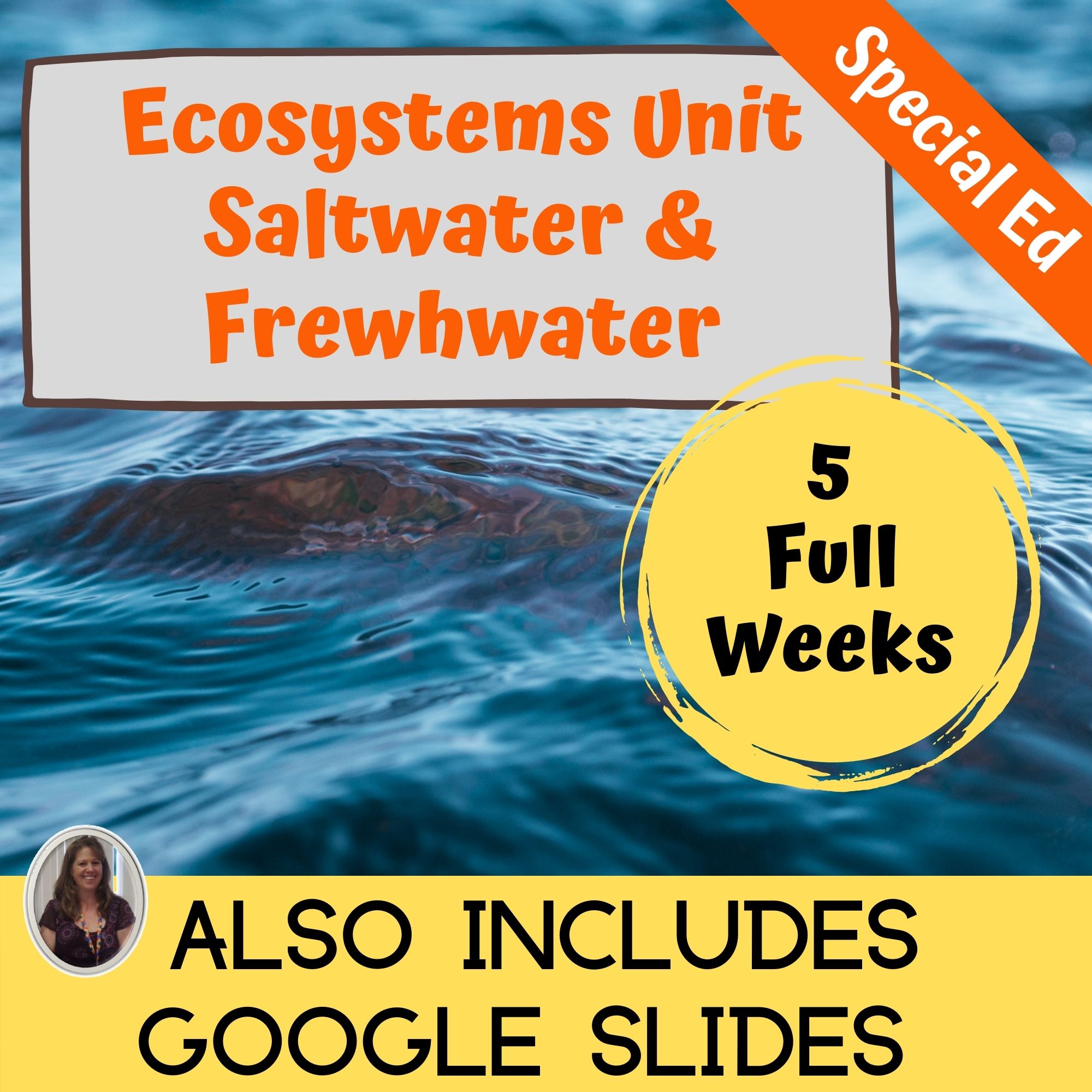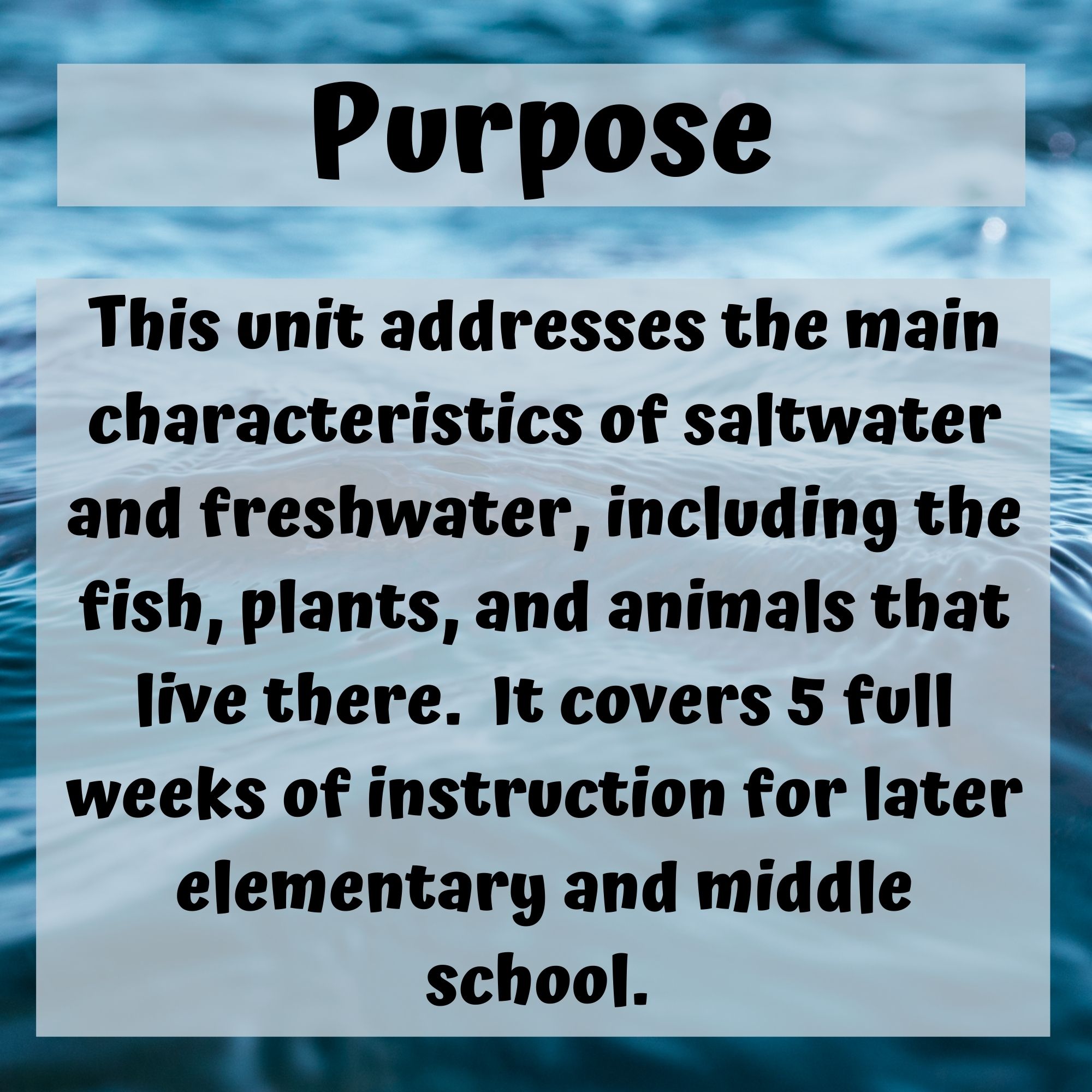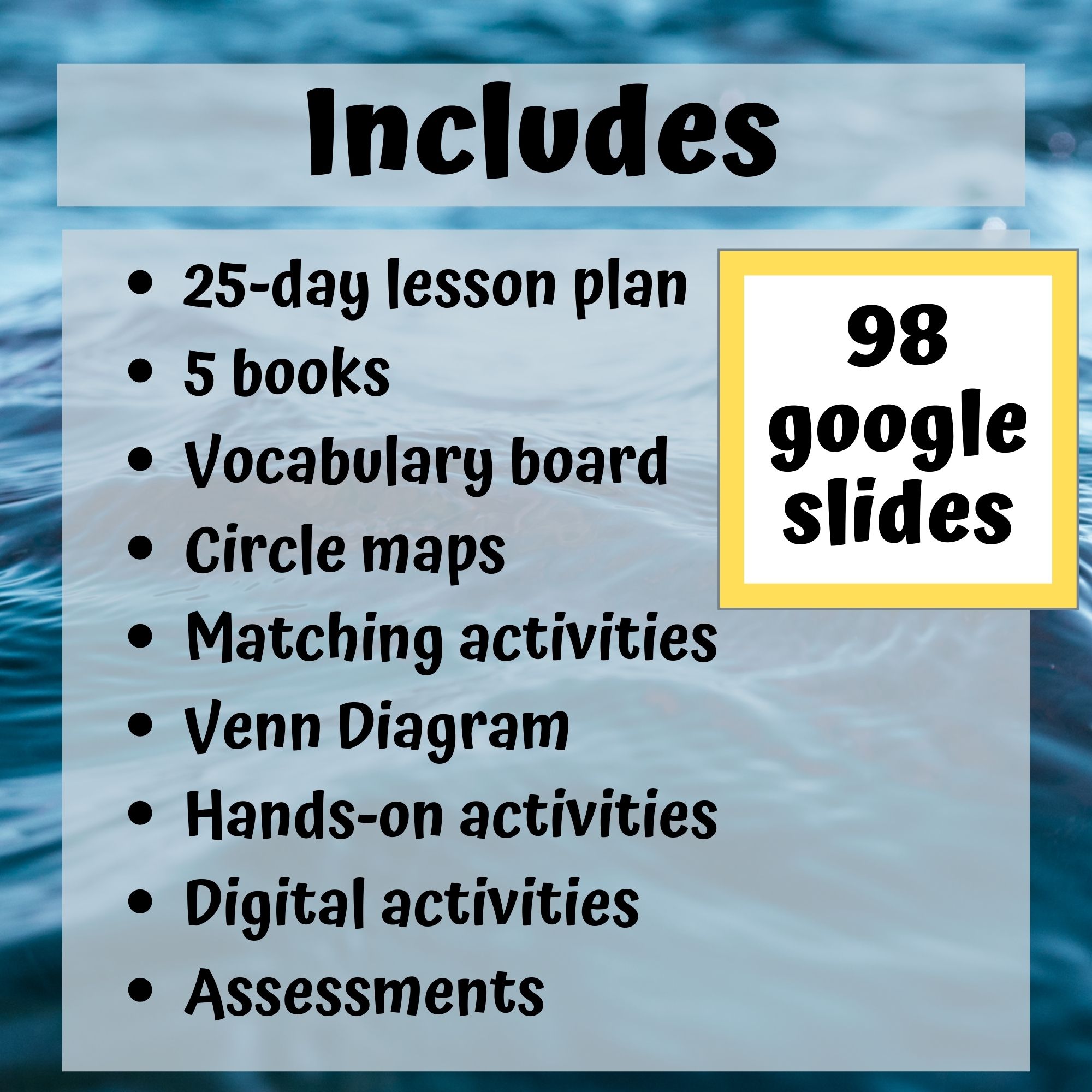Ecosystems: Saltwater Freshwater Unit for Special Ed with lesson plans
$24.00
This ecosystems unit contains over 350 pages of material specifically designed for students with special learning needs, especially autism. This unit on ecosystems addresses the characteristics of saltwater and freshwater in a simplified but rigorous way for students with diverse learning needs to make meaningful and authentic connections to the material whether learning about the environment, animals, or plants.
There are many opportunities for students to engage in repeated information on these two different ecosystems. This repetition encourages a true understanding of saltwater and freshwater ecosystems. Finally, many of the ecosystem activities and assessments include more than one version, suggestions for differentiation, and options for presentation.
Each week has its own detailed lesson plans, power points, printables, and assessments. At the conclusion of the 5 weeks, students should have a good understanding of these two different ecosystems and why each is so important to the survival of the earth.
______________________________________________________
****If you are looking for more resources on ecosystems, check out my unit on Ecology and which covers biomes as well. This unit has a 17-day lesson plan with print and digital activities created for middle or high school. CLICK HERE
______________________________________________________
See Preview for a detailed look at the contents.
*****************************************************************************
Ecosystems Unit Includes:
Week 1: The Differences in the Water
- Water, Water Everywhere book (includes movie version)
- Circle map (includes digital version)
- Saltwater painting activity
- Sorting bodies of water (includes digital version)
- Venn Diagram comparing saltwater and freshwater (includes digital version)
- Quiz (includes digital version)
Week 2: The Differences in fish
- Let’s go fishing book (includes movie version)
- Circle map (includes digital version)
- Fish collage
- Who lives where (fill in the blank activity) (includes digital version)
- Sorting bodies of water (includes digital version)
- Quiz (includes digital version)
Week 3: The Differences in the Animals
- Animals all around us book (includes movie version)
- Circle map (includes digital version)
- Who lives where (fill in the blank activity) (includes digital version)
- Sorting animals (includes digital version)
- Venn Diagram comparing animals in saltwater and freshwater (includes digital version)
- Quiz (includes digital version)
Week 4: The Differences in the Plants
- Growing Up book (includes movie version)
- Circle map (includes digital version)
- Preposition practice (where plants live in relation to the water) (includes digital version)
- Sand dunes non-fiction story and activity (includes digital version)
- Who am I booklet reviewing past 4 weeks (includes digital version)
- quiz (includes digital version)
Week 5: Food Chains in the Water
- Food Chains in the water book (includes movie version)
- Food Chains with cups activity
- Food chains in saltwater (includes digital version)
- Food chains in freshwater (includes digital version)
- Sudoku puzzles (ocean life and pond life) (includes digital version)
- Assessment (includes digital version)
All the activities except the books and food chain cups activity come in color and black and white.
*****************************************************************************
Much of what I have learned about curriculum development is incorporated in these units. For example, do not be afraid of repetition. It is critical that students with significant disabilities get to experience material over several days to be able to fully assimilate what is being taught. Also, adding visual supports to your printables and class activities helps students be able to pay more attention to the content you are presenting rather than the mechanics of what is expected.
Finally, ask questions. Good questions!! Even when learning ecosystems, we can ask students questions that will push them to think more deeply than before.
♥As always please take a moment to leave feedback or post any questions you may have.
$24.00
Lorem.



